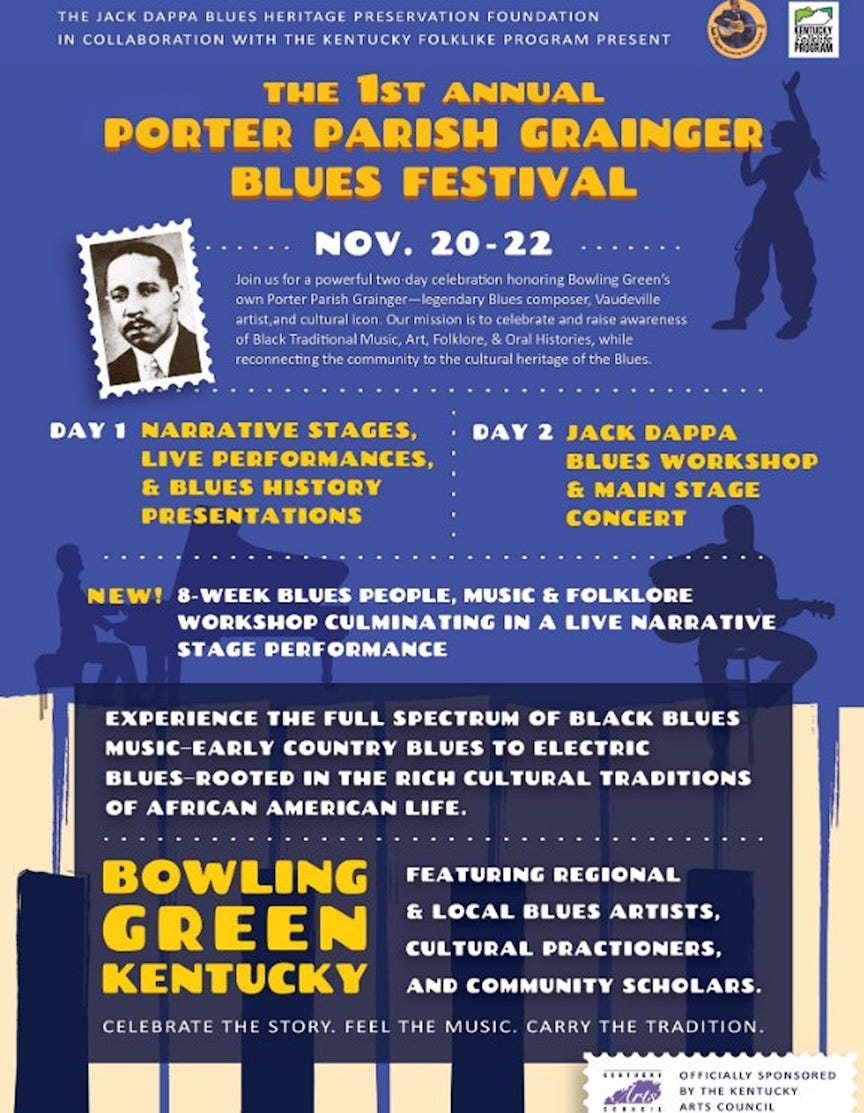Legendary (and forgotten) songwriter of "Dyin' Crapshooter's Blues," "Ain't Nobody's Biz-ness If I Do," "Song From A Cottonfield," "One Hour Mama," and many others, finally receives attention.
Porter Grainger is one of the central characters in my book, an exploration into the origins of the song “St. James Infirmary.” My research entailed a deep plunge, and I came to consider Grainger as a force whose contributions to popular music have been so underrated that I wondered if this was more a racial than a musical bias. There was so little interest in him that, until I looked into it, both the dates and places of his birth and death were unknown.
Now, in 2025, we know that Porter Grainger was born in 1891 (seven years, for instance, before George Gershwin) that he died in 1948 (eleven years after George Gershwin). Bits and pieces of his life come into view, but they quickly fade due to lack of interest. One has to be alert in order to catch and document them.
This recognition of Grainger is past due. Many thanks to the folk in Grainger’s birthplace of Bowling Green for bringing deserved attention to this artist who has been an invisible cornerstone in the development of American popular music.
Politics do not define us. Popular Culture is our essential reference. Porter Grainger, even with the myriad mysteries that envelop his biography, remains a subterranean contributor to our sense of continuity, or even community.
Porter Grainger, as so many songwriters before and after him, revealed some of the illusions imposed by the powers of the time.
Here, as an example, is his Song From A Cottonfield, pretty adventurous for a black composer in 1927.
Grainger wrote hundreds of songs. “Dyin’ Crapshooter’s Blues” might be his most famous. It was recoded three times in 1927 (Martha Copeland - with Grainger on piano, Viola McCoy, and Rosa Henderson) and lay dormant until 1940, when McTell made the first of his three recordings. (Until recently it was assumed that Blind Willie McTell wrote the song; while researching the first edition of this book, about fifteen years ago, I uncovered this error.)
You can find the original, 1925, recordings on YouTube. There were three of them that year, no others until Blind Willie McTell. The first featured Martha Copeland.
























